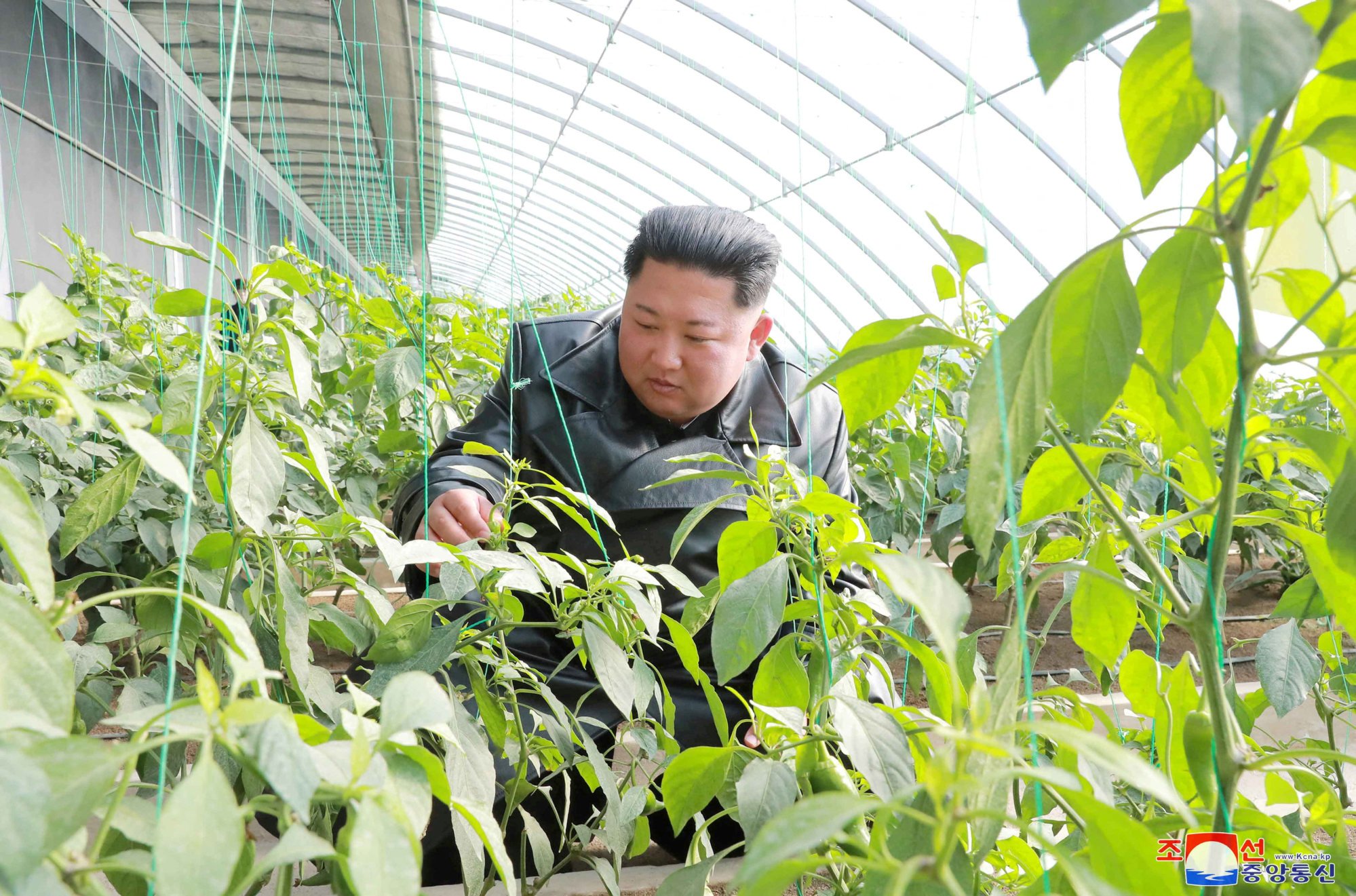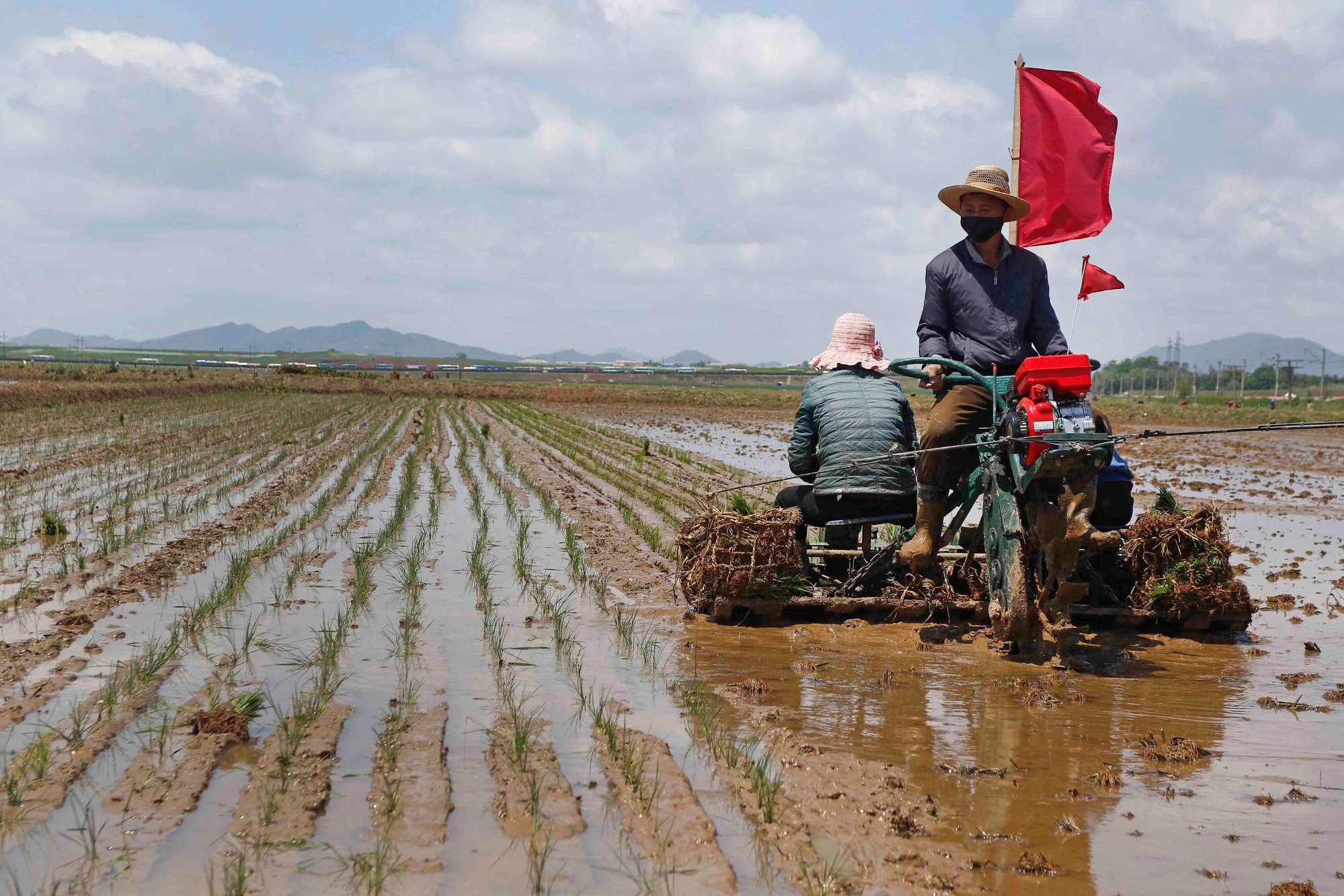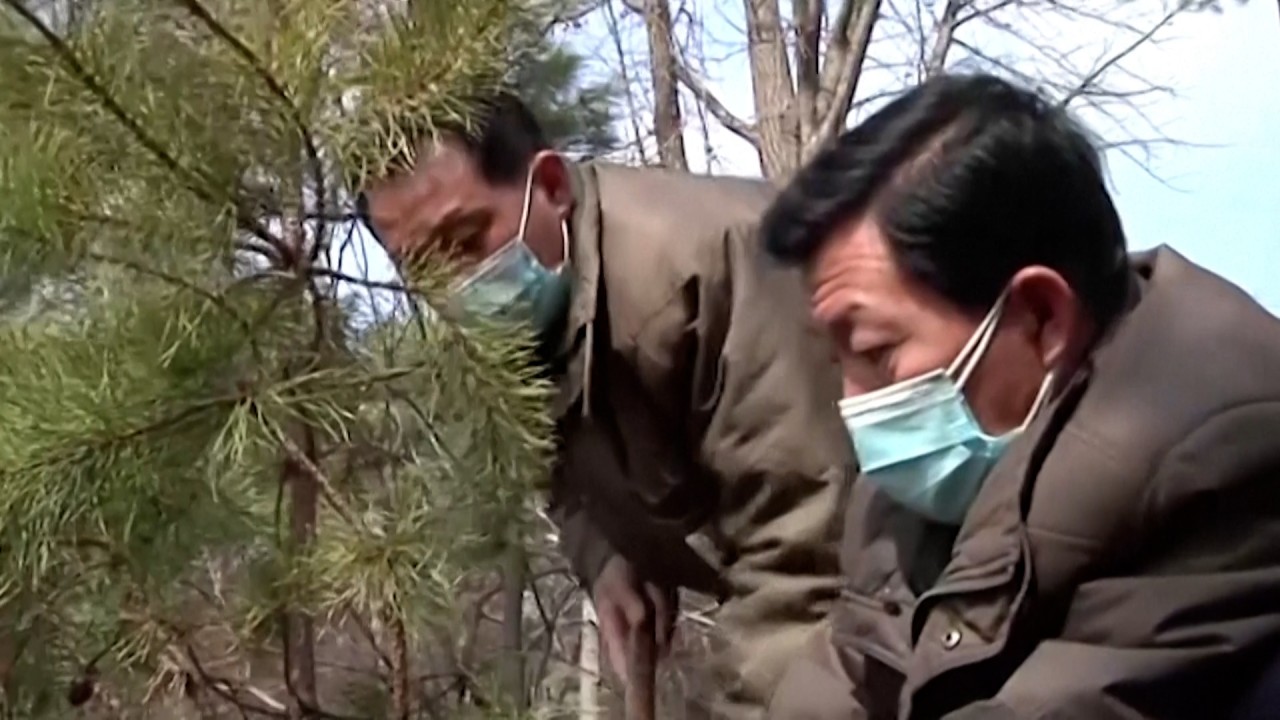
North Korea’s farming reform push unlikely to ease food shortage, analysts say
- North Korea’s food production in 2022 dropped about 180,000 tons from 2021 due to floods, drought and inability to improve crop yields
- Plans to spread the wealth down to farmers had been largely rescinded over the years in favour of tighter centralised control, observers note
Pyongyang was now on the brink of famine as its 2020-21 harvest “probably failed to satisfy minimum human needs”, the Washington-based think tank 38 North said in a report last month.
Between 240,000 and 3.5 million people were estimated to have died during a famine in the 1990s in North Korea, which has long struggled to feed its people.

Jonathan Corrado, director of policy at the New York-based Korea Society, said the precise extent of starvation remained unknown due to the difficulty of getting information in or out of the country.
“But we do know that North Korea’s food production in 2022 dropped about 180,000 tons from the year prior,” Corrado said, adding that this was due to floods, drought and the government’s inability to improve crop yields.
Some key measures spelled out by Kim include completing the irrigation system to cope with climate issues, supplying rural areas with more efficient farm machines and land reclamation that will result in more cultivable areas.
Analysts noted, however, that the recent food shortages did not appear to have prompted Kim’s agricultural reform measures.
Rather, the measures were part of the “new era” policy promoted by the regime since last year, said Dr Eul-chul Lim, a professor at Kyungnam University’s Institute for Far Eastern Studies in Seoul, referring to efforts to implement rural revolution and development outlined during the fourth plenum in 2021.
During the recent plenary meeting there was also no mention of the “Farm Responsibility Management System”, described by Lim as an important institutional device for increasing agricultural productivity.
“This system was introduced to encourage farmers to take responsibility and [boost] the will to produce,” Lim said, adding that the goal was to allow farmers to decide on production, distribution and investment so that their incomes could increase. “[By leaving it] undiscussed, it will be difficult to expect a dramatic increase in food production.”

Agreeing, Corrado pointed to the lack of economic incentives for farmers tasked with doing extra work despite the substandard equipment and difficult conditions.
“It is unfortunately more of the same, and there is little room for optimism that things will be different this time,” Corrado said, adding that it was critical for Pyongyang to open up its borders to receive not just food aid but also agricultural development assistance from the World Food Programme (WFP) and the UN’s Food and Agriculture Organisation.
“In the long-term future, only a fundamental reorganisation of the agricultural sector can achieve lasting gains,” Corrado said.
While Kim had previously experimented with agricultural reforms, Corrado noted that plans to spread the wealth down to farmers had been largely rescinded over the years in favour of tighter centralised control.
North Korea calls for ‘rural revolution’ amid worst food shortage in decades
Last year, widespread flooding caused by heavy rains destroyed crops and homes across North Korea. South Korean government estimates showed the North’s agricultural output declined to 4.51 million tonnes in 2022, down 180,000 tonnes from 2021.
Border closures due to the pandemic had made it more difficult for humanitarian workers to enter the country to deliver aid, Corrado said.
“[This has] disproportionately affected the 40 per cent of the population which is food insecure,” Corrado said, noting that in 2021 the WFP had been able to reach about half a million people with food aid.
That is less than half of its target, mainly due to the difficulty of importing maize and wheat as a result of the war in Ukraine.
The latest WFP report in 2021 showed that food consumption in North Korea had declined for many households, with 34 per cent of reproductive-age women suffering from anaemia and 18 per cent of children from stunting.
Lim of Kyungnam University said while North Korea was known to be short of between 800,000 and 1.2 million tons of food each year, it was difficult to conclude that production had decreased to such an extent that starvation had occurred.
“Even if [starvation has] occurred, it is not at all to the extent of threatening the North Korean regime,” Lim said.
Donald Kirk, a veteran correspondent and author of books about Korea, the Vietnam war and the Philippines, said while North Korea did not face famine on the same scale as during the 1990s, it was unlikely that the country could undertake the sort of “agricultural transformation” as spelled out by Kim.
The leader was investing too much into the armed forces and developing missiles and nuclear warheads, Kirk added.
North Korea’s Kim oversees nuclear counter-attack drills against US, South Korea
In 2019, North Korea spent around US$4 billion on defence, amounting to 26 per cent of its estimated GDP, the highest proportion among 170 countries reviewed by the US State Department in 2021.
North Korea last week fired an intercontinental ballistic missile into the sea between the Korean peninsula and Japan, just hours before South Korea’s President Yoon Suk-yeol flew to Tokyo for a summit.
Pyongyang has also conducted multiple missile launches amid ongoing joint South Korea-US military drills that North Korea condemns as hostile actions.
“[Kim] is calling too late for bringing about reform of an agricultural system that is deeply flawed and impossible to transform without diverting military funds into the rural economy,” Kirk said.

Describing Kim’s proposals on agricultural reform as “vague, not specific and entirely inadequate”, Kirk added that North Korea would have to undergo a transformation in attitudes away from nuclear weapons and missiles, and should also reduce the size of its 1.2 million-strong military.
“The rhetoric suggests that Kim will invest heavily in the armed forces while paying mostly lip service to transforming the economy,” Kirk said.
Economic reforms in North Korea began in the mid-1980s, but have been limited both in scope and depth as the leadership is concerned that further economic liberalisation might erode its hold on power.



